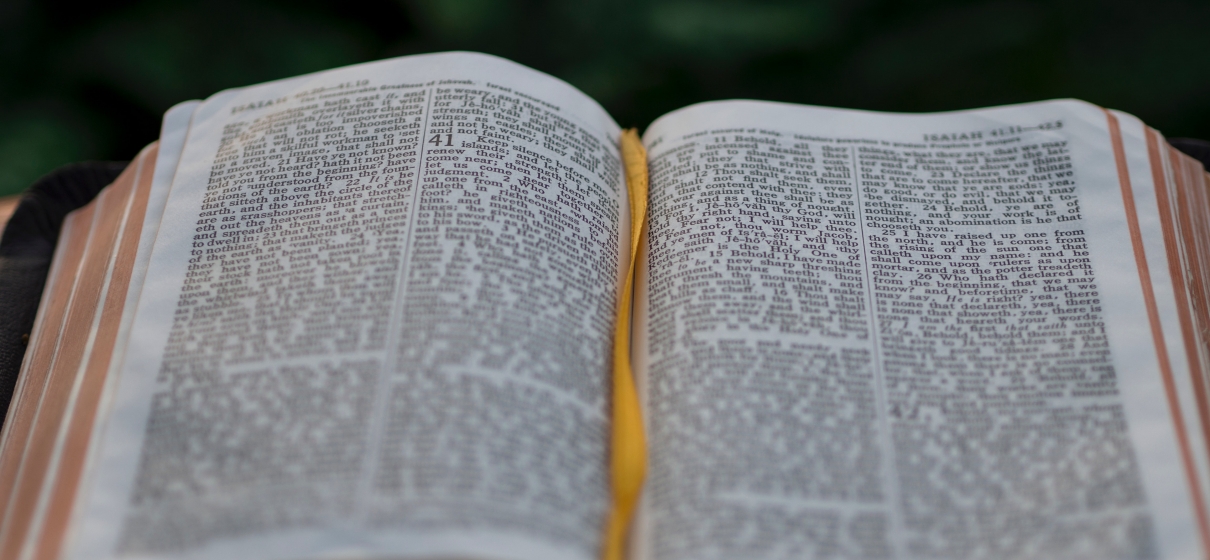Made Well: Jesus and the Bleeding Woman
“If you could meet anyone in the Bible — besides Jesus — who would it be, and why?”
That was the question posed to the group of women gathered for Bible study in my living room five years ago.
We were an eclectic bunch. We were part of different church bodies, social circles, and life stages. But we all had one thing in common: a deep understanding of our dependence on the gospel of Christ.
These gracious women agreed to meet at my house despite the scattered baby toys and sink full of unwashed dishes because I had just given birth to my second daughter a few weeks prior.
When it was my turn to answer the question, I already knew what I was going to say. I’d want to meet with the anonymous woman who — in my opinion — had one of the most intriguing encounters with Jesus recorded in the Bible.
We’re never told her name, but we can piece her story together from 18 verses spread across three books.
The story goes something like this:
For twelve years, this woman suffered from menstrual bleeding. She spent all of her money on doctors who couldn’t make her better. In fact, it had only gotten worse.
According to the law, she was unclean. For over a decade, she couldn’t go in public without first declaring her uncleanness. Anyone or anything that touched her also became unclean, and she was prohibited from entering the temple.
Like many others, she heard about the miraculous works of Jesus and knew that if she could just get near him, there was a chance she could be healed.
As Jesus was doing ministry, great crowds surrounded him to hear him teach and to seek healing.
On one particular day, this bleeding woman was among the crowd that pressed around Jesus. She was desperate and hopeless, and this was her chance. She reached out and touched his robe, and she felt her bleeding stop immediately.
Jesus noticed that power had left him, so he asked, “Who touched me?”
His disciples knew there was no way to identify who touched him among the crowd that encircled him. But Jesus persisted.
“Who touched my garments?”
She felt the exact moment her decade-long disease had ended, and it became evident that Jesus did too.
He stopped in his path, looking for her.
Terrified and trembling, she fell down in front of him, and told the whole truth about what she had done.
Then, the unexpected happened. Jesus replied: “Daughter, your faith has made you well; go in peace, and be healed of your disease.”
As quickly as it began, their encounter was over.
What an incredible story!
Although there’s a mountain of things we’re never told about her, her story tells us a lot about Jesus by noticing what he didn’t do.
He was not repulsed by her ailment.
A woman’s menstrual cycle is not exactly a hot topic at co-ed dinner tables today. Imagine how repulsive the subject would have been back then!
I can only imagine the shame and humiliation she must have felt as she publicly declared herself unclean and her peers dodged her path to avoid her touch.
Jesus wasn’t that way, though.
When she fell to his feet and confessed what she’d done, he wasn’t at all disgusted. He simply declared she had been made well because to those who seek him in faith, he is kind and compassionate.
He was not indifferent to her faith.
When Jesus stopped to draw attention to the woman, he declared it was her faith that brought her healing.
In fact, the word used to describe her transformation can either mean to “heal” or to “save” and indicates that the moment she received physical healing, she also received spiritual salvation.
Jesus isn’t only interested in our physical healing here and now, He wants us to be restored to right-relationship with God for eternity.
He was not made unclean.
As the woman moved through the crowd to approach Jesus, everyone she touched should have been made unclean, including Jesus! But that’s not what happened.
In their encounter, we see Jesus as the True Temple – the place where the Spirit of God dwelled and made the woman clean, spiritually and physically.
When I was asked about meeting someone from the Bible in my small group, my body ached. I was at the starting line of a long fight with postpartum depression and I felt ashamed of my failure to adjust as a mother of two.
I chose the bleeding woman because I could relate to her. But far more importantly, Jesus could, too.
In an unexpected way that no other man can, Jesus relates to the necessary pain of women.
The monthly pain women experience, and the pain of labor mothers endure, makes a way for and delivers new life. Jesus gets that. He shed his blood to make a way for our new life and delivered us from our sin.
Then, as a mother nurses her newborn to sustain them, Jesus sustains us as we navigate through a broken, sin-distorted world until it’s time to reunite with him forever.
If I could meet anyone from the Bible — besides Jesus — I think it would still be the bleeding woman. I hope she would tell me all about her kind, compassionate Savior who healed her, rescued her, and sustained her.
And I bet she wouldn’t be surprised to hear he did the same for me.








